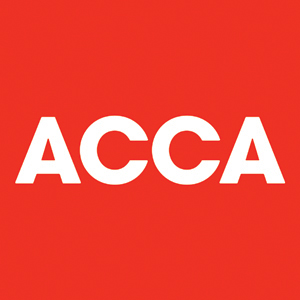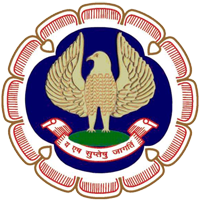
Accounting or Accountancy is the measurement, processing, and communication of financial and non financial information about economic entities such as businesses and corporations. Accounting, which has been called the "language of business", measures the results of an organization's economic activities and conveys this information to a variety of users, including investors, creditors, management, and regulators. Practitioners of accounting are known as accountants. The terms "accounting" and "financial reporting" are often used as synonyms.

An accountant is a practitioner of accounting or accountancy. Accountants who have demonstrated competency through their professional associations' certification exams are certified to use titles such as Chartered Accountant, Chartered Certified Accountant or Certified Public Accountant. Such professionals are granted certain responsibilities by statute, such as the ability to certify an organization's financial statements, and may be held liable for professional misconduct. Non-qualified accountants may be employed by a qualified accountant, or may work independently without statutory privileges and obligations.
The International Accounting Standards Committee (IASC) was founded in June 1973 in London at the initiative of Sir Henry Benson, former president of the Institute of Chartered Accountants in England and Wales. The IASC was created by national accountancy bodies from a number of countries with a view to harmonizing the international diversity of company reporting practices. Between its founding in 1973 and its dissolution in 2001, it developed a set of International Accounting Standards (IAS) that gradually acquired a degree of acceptance in countries around the world. Although the IASC came to include some organizations representing preparers and users of financial statements, it largely remained an initiative of the accountancy profession. On 1 April 2001, it was replaced by the International Accounting Standards Board (IASB), an independent standard-setting body. The IASB adopted the extant corpus of IAS which it continued to develop as International Financial Reporting Standards.

Chartered accountants were the first accountants to form a professional accounting body, initially established in Scotland in 1854. The Edinburgh Society of Accountants (1854), the Glasgow Institute of Accountants and Actuaries (1854) and the Aberdeen Society of Accountants (1867) were each granted a royal charter almost from their inception. The title is an internationally recognised professional designation; the certified public accountant designation is generally equivalent to it. Women were able to become chartered accountants only following the Sex Disqualification (Removal) Act 1919 after which, in 1920, Mary Harris Smith was recognised by the Institute of Chartered Accountants in England and Wales and became the first woman chartered accountant in the world.

Founded in 1904, the Association of Chartered Certified Accountants(ACCA) is the global professional accounting body offering the Chartered Certified Accountant qualification (ACCA). ACCA's headquarters are in London with principal administrative office in Glasgow. ACCA works through a network of over 104 offices and centres in 52 countries - with 323 Approved Learning Partners (ALP) and more than 7,300 Approved Employers worldwide, who provide employee development.
The South African Institute of Chartered Accountants (SAICA), is a professional accountancy body in South Africa.

The Institute of Chartered Accountants of India (ICAI) is the national professional accounting body of India. It was established on 1 July 1949 as a statutory body under the Chartered Accountants Act, 1949 enacted by the Parliament to regulate the profession of Chartered Accountancy in India. ICAI is the second largest professional Accounting & Finance body in the world. ICAI is the only licensing cum regulating body of the financial audit and accountancy profession in India. It recommends the accounting standards to be followed by companies in India to National Financial Reporting Authority and sets the accounting standards to be followed by other types of organisations. ICAI is solely responsible for setting the Standards on Auditing (SAs) to be followed in the audit of financial statements in India. It also issues other technical standards like Standards on Internal Audit (SIA), Corporate Affairs Standards (CAS) etc. to be followed by practicing Chartered Accountants. It works with the Government of India, Reserve Bank of India and the Securities and Exchange Board of India in formulating and enforcing such standards.

Founded in 1908, the Certified General Accountants Association of Canada (CGA-Canada) serves Certified General Accountants and students in Canada and nearly 100 countries. CGA-Canada established the designation's certification requirements and professional standards, offers professional development, conducts research and advocacy, and represents CGAs nationally and internationally. CGA-Canada joined the Chartered Professional Accountants of Canada to integrate operations under the CPA banner in 2015. CPA Canada is the new national accounting body formed by the merger of the Canadian Institute of Chartered Accountants (CICA) and the Society of Certified Management Accountants (CMA) in 2013, and now Certified General Accountants.
The Institute of Cost Accountants of India (ICAI), previously known as The Institute of Cost & Works Accountants of India (ICWAI), is a premier statutory professional accountancy body in India with the objects of promoting, regulating and developing the profession of Cost & Management Accountancy. Institute is also known as ICMAI. It is the only licensing cum regulating body of Cost & Management Accountancy profession in India. It recommends the Cost Accounting Standards to be followed by companies in India to which statutory maintenance of cost records applicable. ICAI is solely responsible for setting the auditing and assurance standards for statutory Cost Audit to be followed in the Audit of cost statements in India. It also issues other technical guidelines on several aspects like Internal Audit, Management Accounting etc. to be followed by practising Cost Accountants while discharging their services. It works closely with the industries, various departments of Government of India, State governments in India and other Regulating Authorities in India e.g. Reserve Bank of India, Insurance Regulatory and Development Authority, Securities and Exchange Board of India etc. on several aspects of performance, cost optimisation and reporting.

The New Zealand Institute of Chartered Accountants (NZICA) was the operating name for the Institute of Chartered Accountants of New Zealand. The Institute represented over 33,000 members in New Zealand and overseas. Most accountants in New Zealand belonged to the institute.

The Institute of Chartered Accountants of Bangladesh (ICAB) is the national professional accountancy body and research institute in Bangladesh. It is the sole organisation in Bangladesh with the right to award the Associate Chartered Accountant designation. It has 2,005 members.
The Institute of Chartered Accountants of Jamaica (ICAJ) is a professional accountancy body in Jamaica. It is the sole organisation in Jamaica with the right to award the Chartered Accountant designation.
Institute of Chartered Accountants of Pakistan (ICAP) is a professional accountancy body in Pakistan. As of December 2018, it has 9989 members working in and outside Pakistan. The institute was established on July 1, 1961 to regulate the profession of accountancy in Pakistan. It is a statutory autonomous body established under the Chartered Accountants Ordinance 1961. With the significant growth in the profession, the CA Ordinance and Bye-Laws were revised in 1983.

The Institute of Cost and Management Accountants of Bangladesh (ICMAB) is an institution dedicated to Cost and Management Accounting education and research in Bangladesh. It is managed as an autonomous professional body under the Ministry of Commerce. As well as education, it is also engaged in regulating and promoting the profession of cost and management accountant in Bangladesh.
The Association of International Accountants (AIA) is a professional accountancy body. It was founded in the UK in 1928 and since that date has promoted the concept of ‘international accounting’ to create a global network of accountants in over 85 countries worldwide.
The Iraqi Union of Accountants and Auditors (IUAA) is a professional association for accountants and auditors in Iraq. It is the sole Iraqi member of the International Federation of Accountants (IFAC).
The Ordre des Experts Comptables de Tunisie or OECT is a professional association of accountants in Tunisia. It was created in 1983 and placed under the Ministry of Finance.
The Financial Reporting Act 2015 is an act created by the Bangladesh National Assembly. The act was passed on September 6, 2015, in order to follow the accountability and transparency of the financial reporting procedures in the country. On September 9, 2015, the act was officially published by the Government of Bangladesh.

The Institute of Certified Management Accountants of Sri Lanka, is a professional body offering qualification in management accountancy in Sri Lanka.






